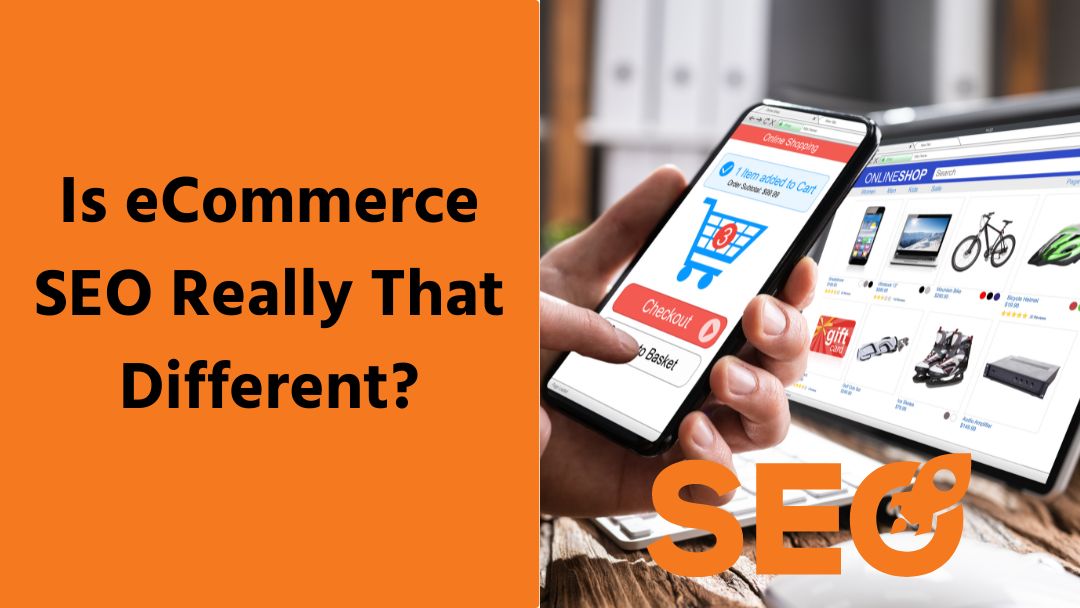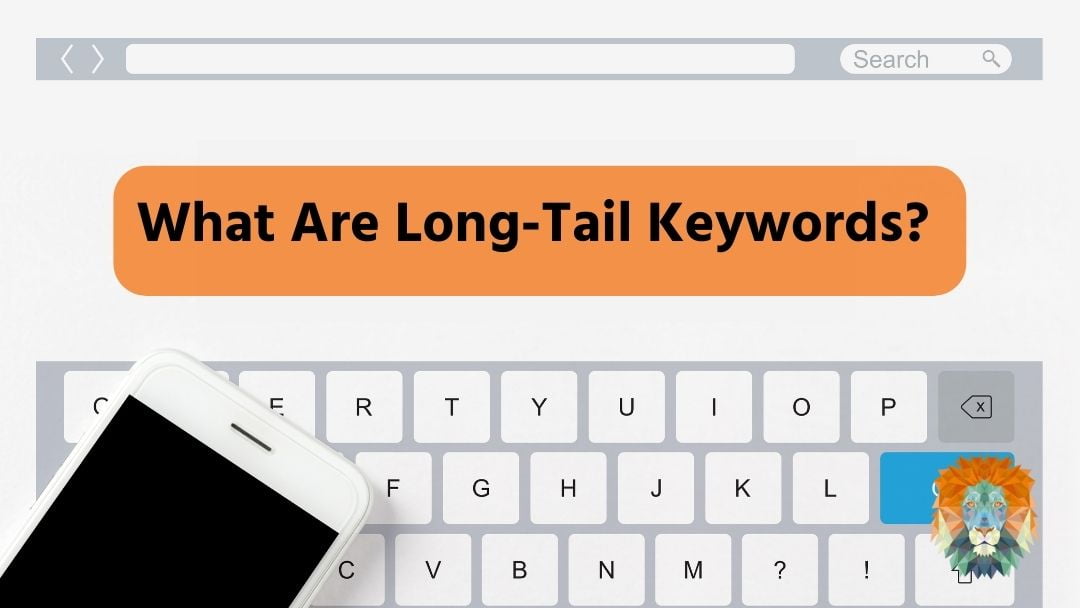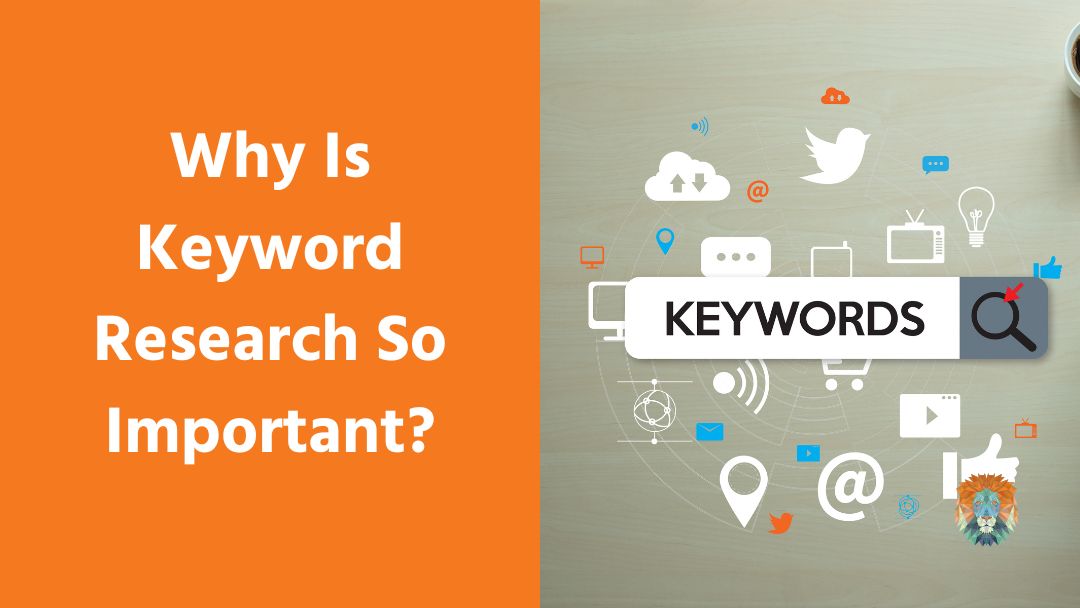When it comes to SEO, it can sometimes seem like a lot of ‘black magic’. There are so many technical terms, and things to look out for that SEO specialists might as well be speaking a foreign language, but the results they get are undeniable. This is why it should come as no surprise that there is more than one school of SEO thought, and lots of different ways to apply SEO techniques to different businesses. Today, we wanted to talk about SEO for eCommerce, why it really is a different type of SEO, and why any business selling online needs to invest in eCommerce SEO.
A Rundown Of ‘Normal SEO’
Before we can talk about the differences between normal SEO and SEO for eCommerce, we need to look at what ‘normal’ SEO is. And we need to bear in mind that ‘normal’ SEO strategies might be different for everyone. But if we look at it widely, normal SEO practices include:
Keyword Research
The backbone of any SEO strategy. Researching the most appropriate and best-ranking keywords for your services and industry, and then distributing them throughout your website and all of your content without ‘stuffing’ them.
Optimising Static Pages
Keeping every page of your website up to date and optimised with appropriate keywords. This seems like a small thing, but you’d be amazed at just how many pages your website really has.
URL Optimisation
Make sure all of your URL slugs are readable by humans, rather than those auto-generated strings of numbers that only make sense to robots.
Performance Optimisation
Google likes websites that are fast and perform well, so a big component of SEO is making sure your site loads quickly and does what it should.
Mobile Responsiveness
Google has also been penalising websites that aren’t mobile-friendly for a few years now, so part of your SEO strategy should be ensuring your site is mobile-optimised and responsive.
Off-Site Optimisation
After all, it’s not just about what happens on your website, but what happens off it as well. This means link-building, engagement on social media and retargeting advertisements to create a positive influx of traffic to your website.
Does SEO Matter For eCommerce?

SEO is a hard enough job, without having to re-learn everything for an eCommerce site, which is one of the reasons so many businesses don’t bother with it. But the thing is, you really should. Not only because SEO is important to the general success of your website on the internet, but because your sales will suffer if you don’t.
For example, did you know that 44% of online shoppers start their buying journey with a search engine? And where do all of those search engine results come from? SEO. That same study found that 37.5% of eCommerce traffic comes from search alone, which should be reason enough to put the effort in! But the other factor to bear in mind is that eCommerce might still take place on the internet, but it plays by slightly different rules than normal SEO. And while it can be quite a lot more work depending on the size of your site, it’s absolutely worth the effort.
Why IS eCommerce SEO Different?
When it comes to eCommerce, good SEO is essentially ‘normal SEO plus’ All of that good SEO stuff you’ve been doing for your standard website is still applicable, but now there’s a lot more you can do to win the battleground that is the world of eCommerce. We like to call these ‘advanced techniques’, and they’re designed to make sure your eCommerce site shows up on page 1 of Google. They include:
Optimising Category Pages
Now you not only have static pages to worry about but category pages too! These pages are how customers navigate your shopfront, so they need to be well-structured and optimised. For example, instead of having a category page for ‘dresses’ you might want to have a category page for ‘women’s party dresses’, another for ‘women’s summer dresses’ and another for ‘women’s maxi dresses’. Each of these pages should have a small amount of text – around 350 words – describing the category contents and getting some of those nice keywords in there too. This not only helps customers find what they’re looking for quickly, but it provides Google with all the information it needs and can be a big draw for more organic traffic. But this is a big job, because you need to optimise every. Single. One. The more effectively optimised they are, the better your results will be.
Proper Product Pages
Each and every product you sell should have its own page on the website, and should be optimised properly as well. Didn’t we tell you SEO for eCommerce was a big job? This means each product needs a unique product description (no copying and pasting from one product to another), photographs and videos of the product and a way for customers to buy (an ‘add to cart’ button usually does the trick). We also recommend you add in product specifications, FAQs and a short blurb, along with information like price, availability and product variations, so that customers have everything they need in one place. This is likely to increase the time spent on the page and the likelihood of purchase. Oh, and don’t forget your keywords through all of that!
Effective Internal Linking Structure
Google loves your website to be technically correct as well as look good. That means the back end of your site needs just as much attention as the front end when it comes to SEO. Particularly, the internal linking structure. This means keeping your link depth (how many levels a user has to click through) for products minimal, and making sure the whole site has a clean and easy-to-use navigation system. Categories can be linked on the home page, and you can set up ‘breadcrumb’ trails for any categories that are found further into the site, making it easier for users to find them. Then make sure you’re building relevant links wherever you can – using your blog to promote products, utilising the ‘people also bought’ function, and including product links in categories, on home pages and on other product pages.
Optimised Product Images
Images are important for eCommerce for a lot of reasons. First, you need to provide customers with an idea of what they’re buying when they can’t physically see it in a store. But if you want people to find those products, you need to optimise those images. This is perhaps more important than some of the other areas we’ve touched on since Google isn’t able to actually see images. They just see the metadata you provide, which means you have a golden opportunity here. Make sure all of your images are properly named using your keywords. Add ALT text for screen readers (with keywords of course), and add more images to each product for extra chances at getting some keywords in. You should also keep an eye on the size of the image you’re uploading – too big and it will take a long time to load, which Google will penalise, undoing all of your hard work.
Rich Snippets For Search
Schema markup is another of those ‘back end’ SEO things we talked about, and it’s important for any business to have set up on their website. But for eCommerce sites it’s essential. This allows you to enable rich results, personalising what users see when a result appears. This includes adjusting which pages appear in search results, adding photos and star ratings, review snippets and more. So your results can look better and draw attention in the flood of search results. To enable this, you just need a structured scheme markup on each page, and to choose which type of page you want rich snippets displayed for. For eCommerce, there are a few that are most important:
- Product
- Local business
- Logo
- Review snippet
- Sitelinks search box
- Breadcrumb
- Article
- Video
If you are using WordPress then we have found the RankMath plugin to be the easiest way of incorporating schema into your website. It can automatically add schema to all of your site’s pages, including your product pages, and on top of this, it is also the best SEO plugin for WordPress that we have found.
However, while you can choose all of this, it’s up to Google whether your product displays as a rich result or not in each search, so you’re not guaranteed the results 100% of the time.Don’t worry if that sounds like a lot. At Lion Spirit Media we specialise in helping businesses make the most of their SEO strategy, including eCommerce businesses. Our experts can help you design and implement an SEO strategy that will include all of the above elements, making sure your products get the attention they deserve. If you’d like to know more about how we do that, just get in touch with the team today.





0 Comments